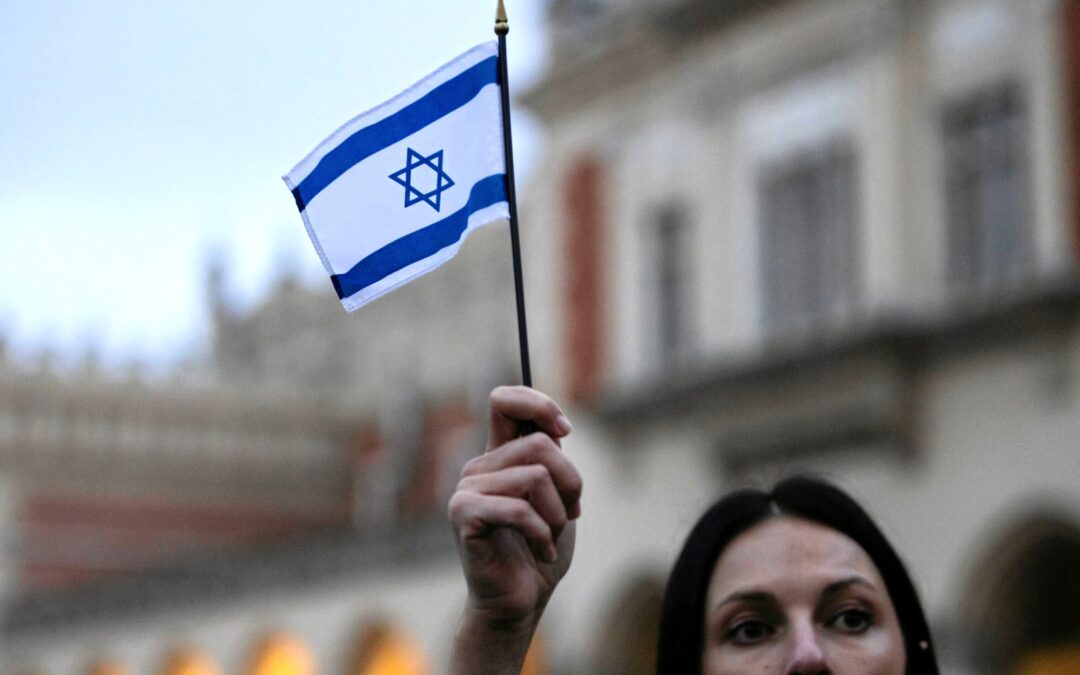Poland should support Israel in its conflict with Iran, says deputy foreign minister Andrzej Szejna, who described Tehran’s recent missile and drone strike against Israel as a “terrorist attack” similar to Russia’s actions against Ukraine. But he added that Warsaw would push for a “de-escalation” of the situation.
“Iran’s intention was to destroy Israel,” Szejna told broadcaster Radio Zet on Tuesday. “Iran’s attack on Israel was a terrorist attack just like Russia’s attack on Ukraine.”
Regarding the broader situation in the region, Szejna said that he “understands the emotions, understands the Palestinian issues”. He noted that Poland has been providing humanitarian support in Gaza.
“But it cannot be the case that Polish diplomacy supports a rocket attack by one country against another,” continued the deputy minister. “Just as we don’t support the killing of Palestinians, we will not support any terrorist acts.”
🎥 Wiceminister @MSZ_RP @AndrzejSzejna: Polska powinna wspierać Izrael, bo silny Izrael oznacza pokój. To w naszym interesie@RadioZET_NEWS #GośćRadiaZET #Rymanowski
Więcej ⬇️https://t.co/OOtkYnsPsL pic.twitter.com/5sNlqIEi9S
— Gość Radia ZET (@Gosc_RadiaZET) April 16, 2024
Szejna also warned that the outbreak of a large-scale war in the Middle East would turn the world’s attention away from what is happening in Ukraine, and “that is a threat for Poland”.
“We must strive to de-escalate the conflict, because attacking Iran benefits the terrorist Vladimir Putin,” said the deputy minister. “The eyes of the world, especially the United States, will be focused on the escalating conflict in the Middle East, and we, Poland, want them to be focused on Ukraine.”
This, he added, is another reason why Poland should support Israel. “A strong Israel means peace [in the Middle East].”
The EU’s foreign ministers yesterday held a video conference to discuss Iran’s strike against Israel. They “took a strong stance asking all actors in the region to move away from the abyss, in order not to fall into it”, said the EU’s foreign policy chief Josep Borrell afterwards.
#FAC | EU foreign affairs ministers held an informal discussion on the latest developments in the Middle East, in light of the recent Iranian drone and missile attacks against Israel.
More information: https://t.co/ItSgoFquAl pic.twitter.com/COKbqUJ7L2
— EU Council (@EUCouncil) April 16, 2024
Poland’s relations with Israel have recently been strained by the Israeli strike on a World Central Kitchen humanitarian convoy in Gaza that killed seven aid workers, one of whom was Polish national Damian Soból.
As well as the incident itself, Polish leaders – including President Andrzej Duda and Prime Minister Donald Tusk – criticised the response of Israeli ambassador Yakov Livne, who initially refusal to apologise for the strike and accused some Polish politicians of antisemitism.
Subsequently, Livne visited the Polish foreign ministry, where he delivered an apology.
Poland says Israel’s ambassador has apologised for the attack in Gaza that killed seven aid workers, one of whom was Polish.
The foreign ministry says the ambassador will not be expelled from Poland, as opposition leader Jarosław Kaczyński has demanded https://t.co/3KJcGtkVyt
— Notes from Poland 🇵🇱 (@notesfrompoland) April 5, 2024

Notes from Poland is run by a small editorial team and published by an independent, non-profit foundation that is funded through donations from our readers. We cannot do what we do without your support.
Main image credit: Jakub Wlodek / Agencja Wyborcza.pl

Daniel Tilles is editor-in-chief of Notes from Poland. He has written on Polish affairs for a wide range of publications, including Foreign Policy, POLITICO Europe, EUobserver and Dziennik Gazeta Prawna.



















